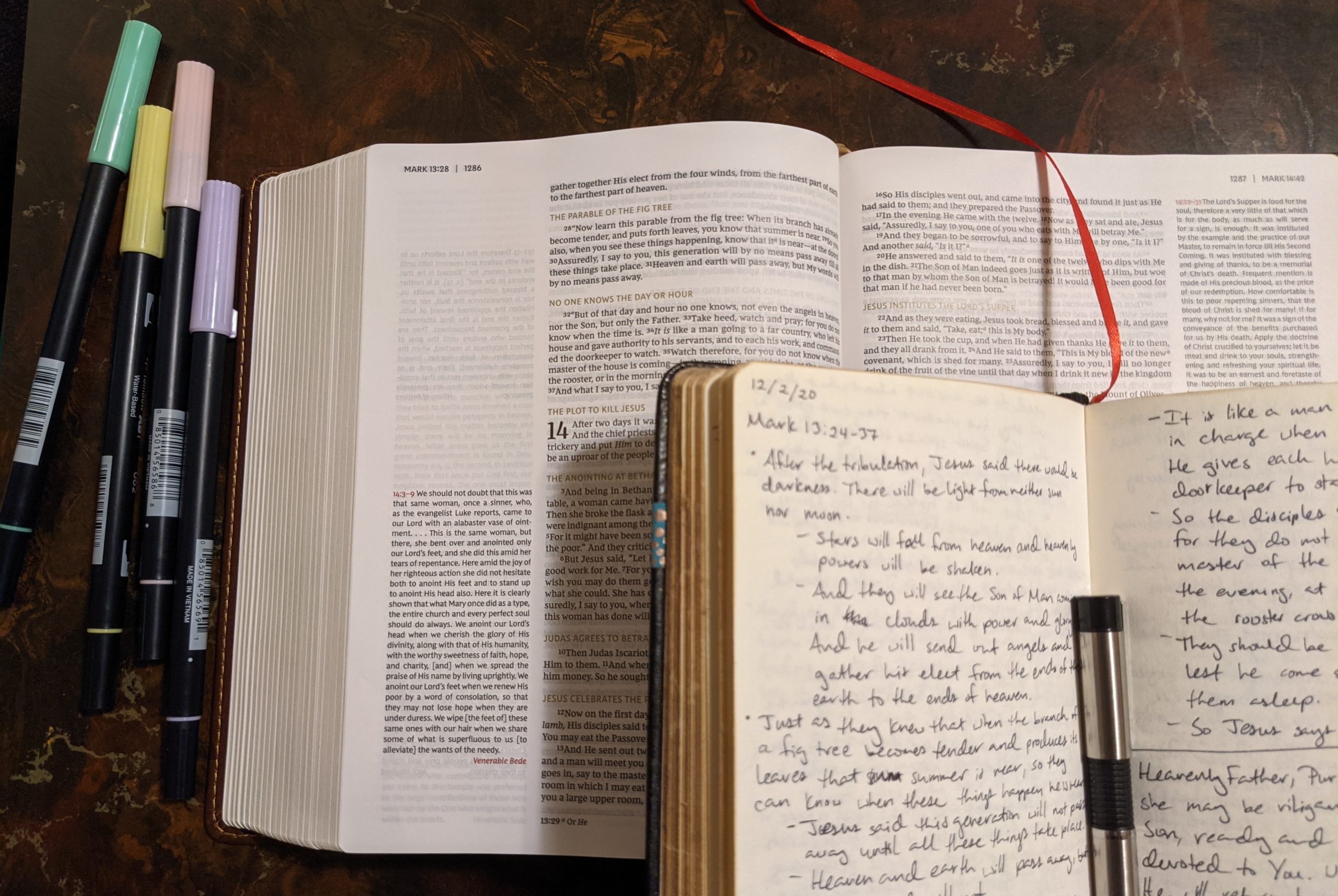
Seven Bible Study Resources
Seven Resources for Studying the Bible
Regular Bible reading is important, but sometimes it can be hard to know where to start. These Bible study resources can help illuminate how to study the Bible, provide tools to enrich your Bible study, and answer questions you might have about the Bible. I’ve loved these resources for years and have turned to them many times as I continue to learn how to study the Bible.
Bible Hub and Blue Letter Bible
My number one Bible study resource to recommend for you is actually two. These are two different resources that are very similar: Bible Hub and Blue Letter Bible.
Both have websites, and both have apps available for download in the Google Play Store and the App Store. Their features are similar but they have different layouts. Personally, I have the Bible Hub app on my phone, but you can’t go wrong with either one. Best of all, both are completely free.
Their features include multiple Bible versions to read from and use in parallel, read through commentaries, look up cross-references, peruse Strong’s concordance, check out the Hebrew and Greek, and so much more.
I have found having all this information easily available on my phone to be incredibly useful. If I come across a question in my Bible reading or even at church I can quickly look up the verse, find out about a word in Strong’s, and read multiple commentaries to get a wide variety of perspectives on it.
BibleHub.com
Bible Hub App for Android
Bible Hub App for iOS
BlueLetterBible.org
Blue Letter Bible App for Android
Blue Letter Bible App for iOS
Got Questions Ministries
Got questions? This website has answers. It’s been several years since I first came across the Got Questions website and over time I’ve found myself turning to it again and again for clearly written biblically-based responses to thousands of questions about the Bible, theology, Christian life, and more. Now they have more questions than ever, answered in multiple languages, and an app for both Android and iOS.
At the time of this writing, their website has answered over 670,000 questions, and new articles are posted all the time. A search bar allows you to see if your question has already been answered, and with nearly 700,000 questions answered there’s a good chance it has been. But if not, you can submit it to the website to be answered.
I love how easy the website is to navigate, how many topics are covered, and how the many Bible references are so easy to look up. They do answer questions that fall in the secondary doctrine category (doctrines that are not central to the Christian faith), and you may disagree with some of these as I have. However, this is only natural and we should be more concerned with their position on primary doctrine. When it comes to these central issues, Got Questions provides answers that align with Scripture and orthodox (right doctrine) theology.
GotQuestions.org
Got Questions App for Android
Got Questions App for iOS
Bible Gateway
Perhaps the most well-known resource on this list, Bible Gateway has been a staple of online Bible study for years. With easy access to multiple translations, parallel passages, a few free commentaries, and an app, Bible Gateway has a lot to offer.
It also offers email devotionals that you can sign up for and have biblical content delivered right to your inbox. They also have a premium membership, Bible Gateway Plus, which costs $39.99 a year. I’ve never used Bible Gateway Plus, but the membership unlocks over 50 commentaries, Bible dictionaries, and study Bibles.
My favorite Bible Gateway feature is the search function. If I want to look up a verse, but I can’t remember the reference I can put in whatever words I remember and see what comes up. If I remember what book of the Bible it’s from, I can quickly filter it by that book, or by Testament if I can’t.
Popular verses containing your keyword come up as suggested results, which often makes searches easier. For example, if you search ‘fruit’ on Bible Gateway you’ll see 243 results listed in biblical order, but before that Galatians 5:22-23 comes up as a suggested result, pointing you to the passage on the fruit of the Spirit.
BibleGateway.com
Bible Gateway App for Android
Bible Gateway App for iOS
How to Read the Bible For All Its Worth
How to Read the Bible For All Its Worth is a book I read in college. Written by Gordon Fee and Douglas Stuart, it’s a great introduction to biblical interpretation. The language is clear, written for the layman, but that doesn’t mean it won’t be challenging at times.
Each chapter in the book (with a couple exceptions) is dedicated to a different genre of the Bible. That chapter will then explain the unique nature of that genre and specific things to keep in mind as we read the Bible. Along the way you will find lots of biblical examples to provide further clarity.
The first two chapters act as an extended introduction to the book. Instead of addressing specific genres, they speak to the need for interpretation in the first place, and picking a good translation in the second (although, they seem to prefer the NIV, which is not surprising as both the NIV and this book are published by Zondervan and Gordon Fee is an honorary member of the NIV committee. The content of this book, however, can be applied to any quality translation of the Bible).
How to Read the Bible Book by Book
This next book is one of several companion books to How to Read the Bible for All Its Worth. Also by Fee and Stuart, How to Read the Bible Book by Book is organized by the books of the Bible. Instead of traditional chapters, you’ll find shorter sections dedicated to each book of the Bible.
Each section is further divided for ease of use. First is ‘Orienting Data,’ which includes information such as a brief summary, authorship, approximate dates, and what the book emphasizes. Next they included an overview of the book, which considers the content of the book in a bit more detail. After that is specific advice for reading each book, highlighting themes throughout the book and other noteworthy characteristics. Finally, they include a walk-through, going through the biblical book, section by section. This provides a helpful outline including notes specific to that section.
God’s Big Picture
The final Bible study resource I want to recommend is a book called God’s Big Picture by Vaughan Roberts. Another one from my undergraduate days, this book is one I returned to and found I liked it even more than the first time. God’s Big Picture has the goal of discovering a birds-eye-view of Scripture—tracing the storyline of the Bible, as the subtitle says.
Truly accessible language and clearly explained concepts are some of the hallmarks of this book, but not at the expense of biblical depth and value.
Each chapter concludes with a Bible study section, which includes key texts to understand each part of biblical history and questions to dig in deeper.
I’ve benefited from each of these Bible study resources. If there’s a resource you love that I haven’t included here, let me know in the comments, I’d love to check it out!





